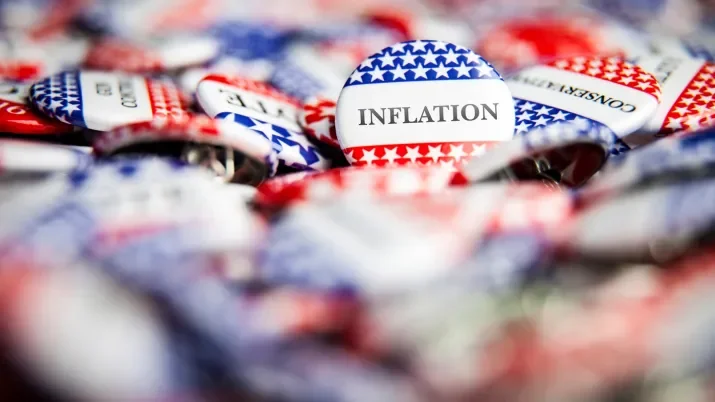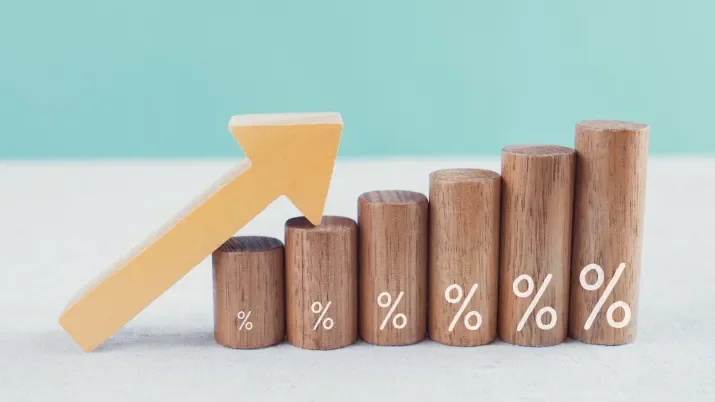Two pieces of good news for investors on inflation
Market participants are in desperate need of positive news given the dismal returns the vast majority of asset classes have delivered so far this year. Given the high level of continued uncertainty we cannot claim we have seen news that will turn the market around today, but we are beginning to find some comfort in a couple of trends around inflation and inflation expectations.
As we wrote earlier this week, we think we will need to see clear evidence of the inflation trend reversing before investors take enough comfort to shift the momentum of fund outflows and help soothe the horrible returns experienced in H1 2022. As central bank leaders highlighted at the recent ECB conference in Sintra, the global inflationary shock is now both supply and demand driven. The former is exemplified by persistent supply chain issues making the production of a whole raft of goods and services suboptimal, while the latter is illustrated by the enormous pools of cash sitting in consumers’ bank accounts as a result of fiscal stimulus driving savings ratios to record levels some quarters ago. Very importantly though, if a supply shock (which would be all but ignored by central banks under normal circumstances) proves to be persistent enough, then it might be the case that inflation expectations adjust higher. This is perilous as wages might respond, thereby perpetuating the inflationary shock into the future.
The first piece of positive news has to do with commodities prices. Given the persistence of the supply shock, it is difficult to see inflation expectations correcting unless commodities prices do so first, and over the last month we have started to see precisely that. Most commodities have seen price declines that are quite substantial, with oil falling close to 10% in a day this week and down 17% in the last month. One-month performance in other products has followed suit, with aluminium down 12.25%, copper and nickel down around 20% and notably wheat down 27.5%. All good news from a markets point of view, and with wheat futures having now given up all their gains since Russia’s invasion of Ukraine good news from a humanitarian one as well. In our opinion these reflect the fact that aggregated demand is likely to slow. In other words the managed slowdown the Fed is attempting is showing signs of actually working. Financial conditions have tightened and markets expect this to have an impact on demand for commodities. This is good news as the sooner the Fed achieves their objective the sooner they can pause their adjustment to monetary policy.
The second piece of positive news comes from inflation breakevens. The Fed and other central banks cannot even start thinking about thinking about pausing monetary policy adjustment, to borrow Jerome Powell’s phrase, if inflation expectations are at risk of becoming de-anchored. The one-year inflation breakeven in the US has declined from its year-to-date peak of 6.30% to 3.75% currently, the five-year breakeven has dropped from a YTD peak of 3.75% to 2.50% currently, and the 5Y/5Y breakeven (i.e. average inflation expectations from 2027 till 2032) has dipped from a YTD peak of 2.55% to 2.05% currently. We are not suggesting the Fed is about to pause right now, but this necessary condition for them to do so once inflation starts declining in earnest is currently satisfied. Needless to say, this correction in inflation expectations is partly down to the aforementioned price action in commodities.
So while we are not calling the bottom of the market at this juncture, it would be foolish to ignore the fact that the main driver of central banks’ aggressive policy tightening might be showing some early signs of moving in the right direction. For investors (and the Fed), the hope is that this delicate balancing act of slowing aggregated demand to bring down growth and commodities without causing a major recession can continue. Time will tell, but we do think it is a possibility that should not be ruled out altogether.
As we wrote earlier this week, we think we will need to see clear evidence of the inflation trend reversing before investors take enough comfort to shift the momentum of fund outflows and help soothe the horrible returns experienced in H1 2022. As central bank leaders highlighted at the recent ECB conference in Sintra, the global inflationary shock is now both supply and demand driven. The former is exemplified by persistent supply chain issues making the production of a whole raft of goods and services suboptimal, while the latter is illustrated by the enormous pools of cash sitting in consumers’ bank accounts as a result of fiscal stimulus driving savings ratios to record levels some quarters ago. Very importantly though, if a supply shock (which would be all but ignored by central banks under normal circumstances) proves to be persistent enough, then it might be the case that inflation expectations adjust higher. This is perilous as wages might respond, thereby perpetuating the inflationary shock into the future.
The first piece of positive news has to do with commodities prices. Given the persistence of the supply shock, it is difficult to see inflation expectations correcting unless commodities prices do so first, and over the last month we have started to see precisely that. Most commodities have seen price declines that are quite substantial, with oil falling close to 10% in a day this week and down 17% in the last month. One-month performance in other products has followed suit, with aluminium down 12.25%, copper and nickel down around 20% and notably wheat down 27.5%. All good news from a markets point of view, and with wheat futures having now given up all their gains since Russia’s invasion of Ukraine good news from a humanitarian one as well. In our opinion these reflect the fact that aggregated demand is likely to slow. In other words the managed slowdown the Fed is attempting is showing signs of actually working. Financial conditions have tightened and markets expect this to have an impact on demand for commodities. This is good news as the sooner the Fed achieves their objective the sooner they can pause their adjustment to monetary policy.
The second piece of positive news comes from inflation breakevens. The Fed and other central banks cannot even start thinking about thinking about pausing monetary policy adjustment, to borrow Jerome Powell’s phrase, if inflation expectations are at risk of becoming de-anchored. The one-year inflation breakeven in the US has declined from its year-to-date peak of 6.30% to 3.75% currently, the five-year breakeven has dropped from a YTD peak of 3.75% to 2.50% currently, and the 5Y/5Y breakeven (i.e. average inflation expectations from 2027 till 2032) has dipped from a YTD peak of 2.55% to 2.05% currently. We are not suggesting the Fed is about to pause right now, but this necessary condition for them to do so once inflation starts declining in earnest is currently satisfied. Needless to say, this correction in inflation expectations is partly down to the aforementioned price action in commodities.
So while we are not calling the bottom of the market at this juncture, it would be foolish to ignore the fact that the main driver of central banks’ aggressive policy tightening might be showing some early signs of moving in the right direction. For investors (and the Fed), the hope is that this delicate balancing act of slowing aggregated demand to bring down growth and commodities without causing a major recession can continue. Time will tell, but we do think it is a possibility that should not be ruled out altogether.




